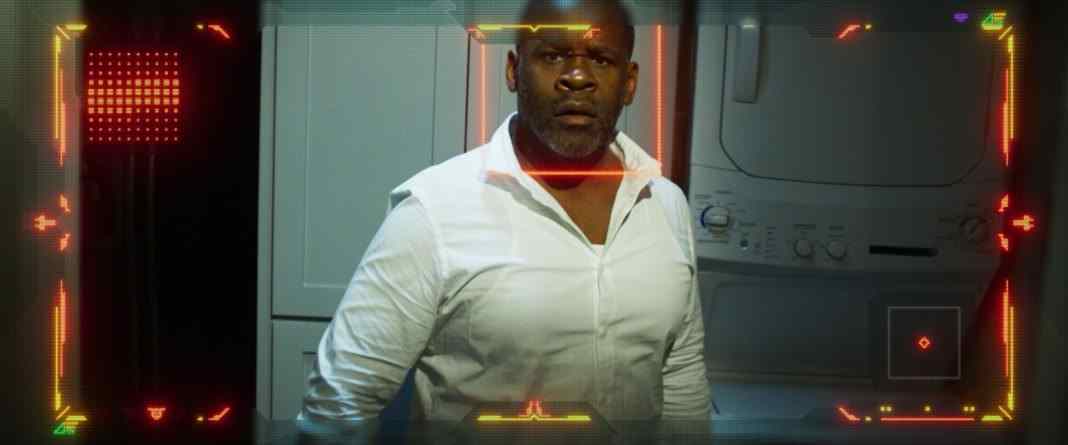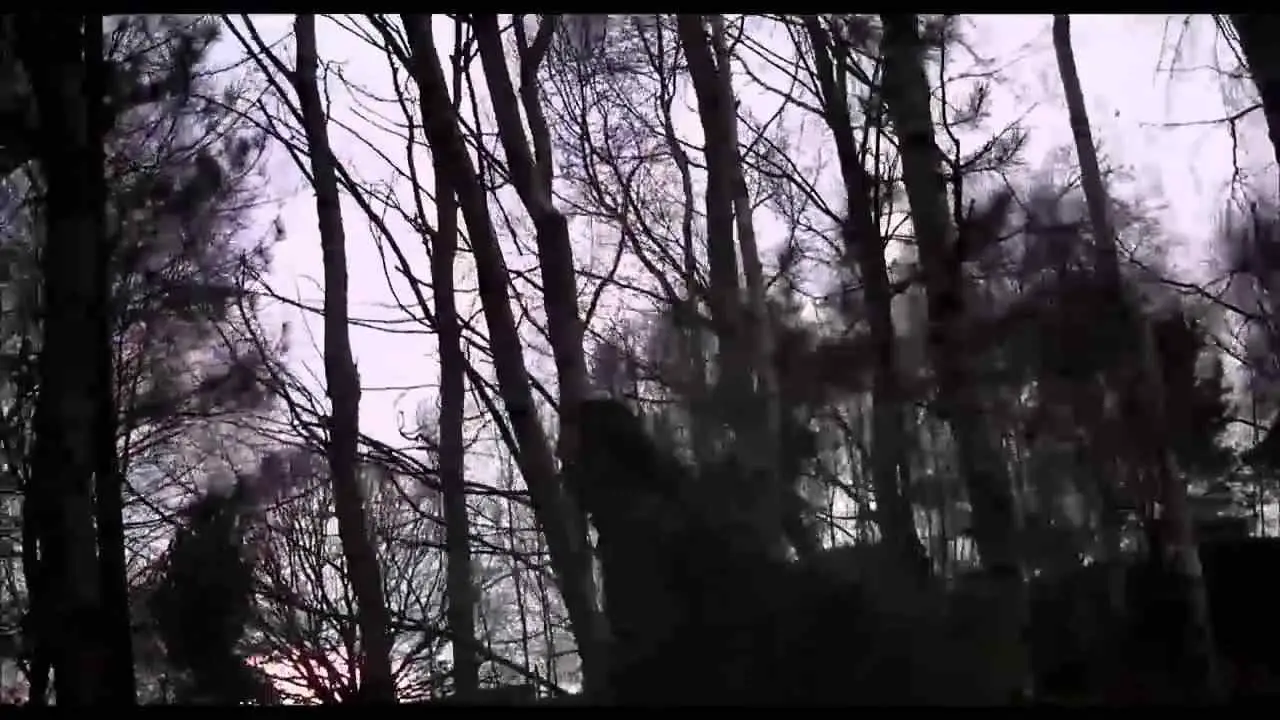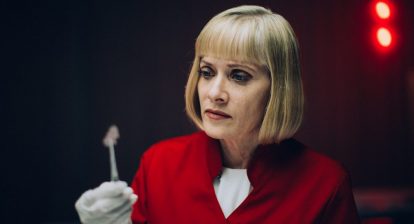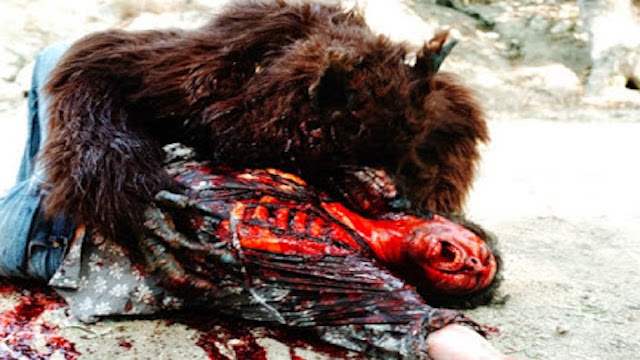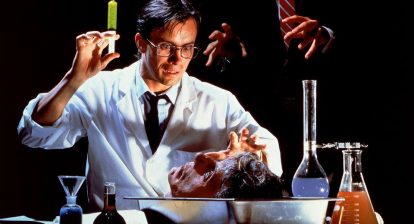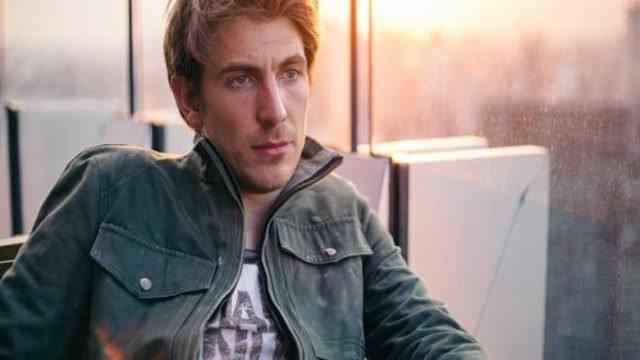Craig muMs Grant is an accomplished actor, poet and playwright. Perhaps best known for his role in HBO’s Oz, he has an impressive resume that spans numerous productions. Grant wrote the short film, Morning Breath, which won accolades at multiple film festivals, and the play, Paradox of the Urban Cliché.
The actor recently sat down with Wicked Horror to discuss his turn in the film, HOVER, which is now in theaters and will be available via VOD July 3rd.
Wicked Horror: I wanted to say very quickly, thank you for taking the time to do this interview with me, I’m a big fan and I really appreciate it.
Craig muMs Grant: No problem, no problem at all.
WH: HOVER takes place in a future not far from our own, but still vastly different from what we experience in our everyday lives. How did this setting influence the way you approached your character, John?
CMG: Well, one, as an actor, and a lover of all kinds of Sci-Fi, I really love a story that takes place in the future, but the near future is always really interesting because it makes a statement about our present, which I really appreciate. And it was very subtle, the language and that connection to the present in the script was very subtle and well crafted, so that drew me in, that definitely drew me in. And the character of John just drew me in, about his resolve and his need to have his own control over his own life, and I really appreciated…that.
WH: John works in the field of assisted suicide. How did John’s profession influence your portrayal of him?
CMG: Somebody who would work in a situation like that, I guess he would have to approach it almost biblical, almost like religious like, you know what I mean? It’s a very spiritual thing, for one to accept their own mortality and bring it about, so I approached it like as if I was a priest. And as a character, it just came over me to be very specific about my mannerisms, about the way I spoke. He was soft spoken, he did everything he had to do in order to comfort the people involved with the assisted suicide.
WH: Your character uses advanced technology in his job, but he also doesn’t seem to trust advanced technology. How did you incorporate these two conflicting elements?
CMG: Well, I mean that’s where we’re at right now. I have this cellphone in my pocket that I don’t trust because I’m so dependent upon it. I left my cellphone in a cab the other day, and I literally was frozen. I couldn’t do anything, couldn’t call anybody, I didn’t know where I was going because the address to where I was going was still in my phone, and I hadn’t really looked at it. I was disabled until I went to the AT&T store and got me another phone, and that’s scary, so I can imagine in the future, like within HOVER, our dependency on technology is a very scary thing, and I think somebody like John is weary. No matter even if he has to use technology in his job, he’s still very weary and tries to have his control over it, and that’s the dichotomy, that’s the thing that we’re all kind of struggling with nowadays. A lot of people like drive and look at their cellphone because they’re looking at the map to where they’re going, and it’s like, wow, what happened when you drove when we didn’t have cellphones, or…[apps], or this, that and the other, where you could figure out where you’re going? You’d just have to figure out where you’re going, you know?
WH: John is quite literally a mentor for the main character. What was your process for reinforcing that on-screen mentor relationship?
CMG: Cleo and I spent a lot of time together down in Baton Rouge, alone in the car, shooting in the car, and a lot of the scenes, so we would get into some really interesting conversations, and I explained to her my experience in Hollywood. She’s a few years younger than me, so we kind of established that kind of relationship, but I learned from her just as much as she learned from me. That’s a very brilliant and talented woman, and I’m really excited to see where she goes with her career in terms of writing and acting. She was very approachable. The very first night we got there, her and I got a drink together, and all of a sudden, we were best buds. It definitely conveyed on screen, our affection for each other and our relationship, and we had just met, but we’re both professionals, and we knew what we needed to do in order to make it work, and we did.
WH: You get to die on camera, which is always fun.
CMG: Always fun.
WH: What was your experience with filming your death scene?
CMG: Oh man, what was beautiful about my death scene was it was the last scene that I was shooting, so we didn’t shoot out of sequence. So, I got to…give everything that I had in it. There was nothing I was holding back, and I’ve never died on screen before like that, so I was really kind of looking forward…I was actually a little nervous, but the way they shot it, they took a lot of care in shooting it. The set was mine, everything was dedicated to me, they gave me all the time in the world to prepare, to just do it again and again and again, and do it as many times as I needed to do it in order to feel like we got what we needed, so I was really appreciative to the whole creative team in [regard] to how they handled that. I can’t wait to see it.
Syfy Films’ HOVER is now in theaters and will be available via Video on Demand starting July 3rd, 2018.
